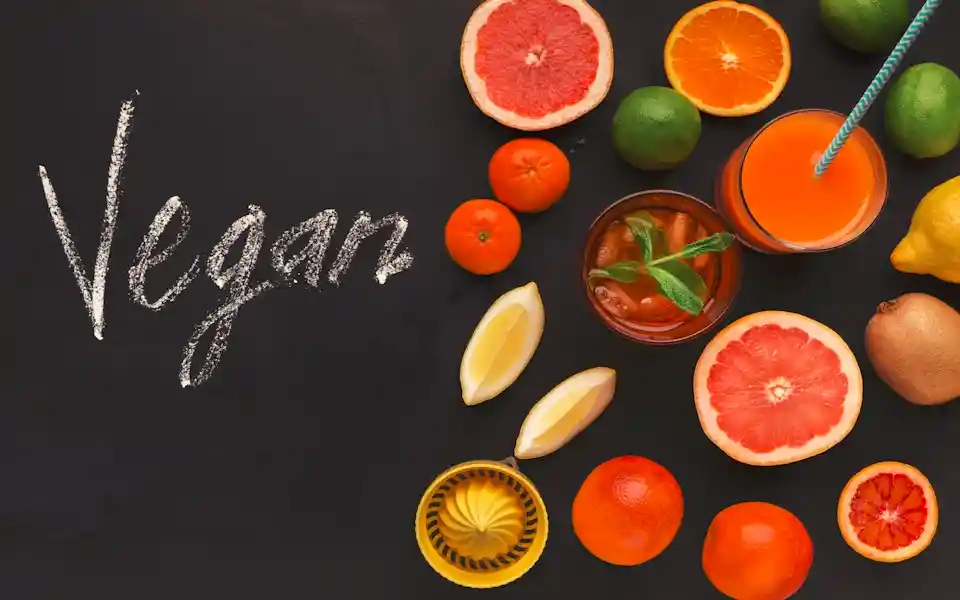Veganism has gone from being a small group of people’s choice to a worldwide movement that millions of people follow. When considering vegan nutrition, key benefits often include health advantages, which is why a lot of people become vegan. To become vegan, you need to know more than just how to avoid animal products; you also need to know how to meet your nutritional needs.
What Is Vegan Nutrition?
Vegan nutrition means getting all of your nutrients from plants instead of animal products like honey, meat, dairy, eggs, and cheese. Veganism strictly avoids all animal products, while vegetarianism and other plant-based diets might sometimes include them.
The idea behind vegan nutrition is that the body can get all the macronutrients (like fats, proteins, and carbs) and micronutrients (such as vitamins and minerals) it needs from fruits, vegetables, grains, legumes, nuts, and seeds. This way of eating focuses on whole foods and nutrient density, which can lead to better health if it is planned correctly.
Key Nutritional Benefits Of A Vegan Diet
One of the best things about a vegan diet is that it is full of healthy nutrients. Plant-based foods naturally have a lot of antioxidants, fibre, vitamins, and minerals. Fibre, which is found in lots of fruits, vegetables, legumes, and whole grains, helps your digestive system work well and may lower your risk of getting chronic diseases.
Diets that don’t include animal products tend to have less cholesterol and saturated fats than diets that do. In turn, this can improve heart health by lowering LDL (“bad”) cholesterol and blood pressure. A lot of vegans also have better weight management because plant-based diets tend to be lower in calories while still being filling.
Antioxidants, which are found in plant foods, help fight oxidative stress. This may lower the risk of cancer and conditions related to inflammation. Veganism also encourages eating a lot of different foods, which means more exposure to phytonutrients that are good for your health.
Essential Nutrients To Focus On
Even though they are good for you, vegans need to pay extra attention to these nutrients:
- Protein: Despite what most people think, plant-based foods like nuts, seeds, tofu, lentils, tofu, tempeh, quinoa, and beans provide enough protein when eaten in a variety of forms and in sufficient amounts.
- Vitamin B12: This vitamin can only be found in foods that come from animals. Vegans should eat fortified foods (like some plant milk and cereals) or take supplements to make sure they don’t fall short, which can lead to anaemia and brain problems.
- Iron: Non-heme iron from plants is harder to absorb than heme iron from meat. Citrus fruits, peppers, and other foods high in vitamin C can help your body absorb iron better when eaten with iron-rich foods like spinach, lentils, and chickpeas.
- Calcium and vitamin D: Tofu, leafy greens like kale and bok choy, and plant milk that have been fortified are all good sources of calcium. Vitamin D is vital for bone health and can be created in the sun or taken as a supplement, especially in places with little sun.
- Omega-3 Fatty Acids: Flaxseeds, chia seeds, walnuts, and algae-based supplements all contain these essential fats, which are important for heart and brain health but can also be found in other foods.
- Other Micronutrients: Whole grains, nuts, seeds, seaweed, and iodine can all provide zinc, iodine, and selenium, which are significant for thyroid and immune system health.
Common Challenges And How To Overcome Them
Vegan food can be healthy and well-balanced, but some problems come up:
- Nutrient Deficiencies: Vegans may not get enough of important nutrients like B12, iron, and omega-3s if they don’t plan. Levels can be kept an eye on with regular blood tests and talks with a nutritionist.
- Meal planning: It’s important to eat a variety of foods. Eating a variety of grains and legumes throughout the day gives you all the protein-building amino acids you need.
- Social Situations: Going out to eat or to a party can be tricky. Making vegan snacks ahead of time or researching restaurants ahead of time can help during these times.
You can handle these problems if you learn more about them and plan your meals carefully.
Health Benefits Backed By Research
- Heart Health: Studies have shown that vegans are less likely than omnivores to have high blood pressure, high cholesterol, and heart disease.
- Diabetes Management: Eating a plant-based diet makes insulin work better and helps keep blood sugar in check, which can help prevent and control type 2 diabetes.
- Cancer Risk: Eating more fiber, fruits, and vegetables has been linked to a lower risk of some cancers, especially colorectal cancer.
- Gut Health: Vegan diets are good for your microbiome because they have a lot of fibre, which can lower inflammation and make digestion better.
Practical Tips For Transitioning To A Vegan Diet
Going vegan can be hard if you don’t have any help. To help, here are some useful tips:
- Start Gradually: Instead of making the switch all at once, eat more plant-based meals over time to give your body and taste buds time to get used to them.
- Diversify Your Foods: Try new grains, legumes, vegetables, nuts, and fruits to ensure nutritional variety.
- Use Resources: To find recipes and support, use vegan cookbooks, nutrition apps, and online communities.
- Consider Supplements: Taking extra vitamin B12 and vitamin D is often important for your health in the long run.
- Listen to Your Body: Keep an eye on your energy, digestion, and overall health, and make changes to your diet as needed.
Conclusion
Vegan nutrition has many benefits, such as better heart health, better digestion, and maybe even a lower risk of getting diseases. To make sure that all nutritional needs are met, though, careful planning is needed. Vegans can be healthy and support ethical and environmental values at the same time by focusing on a varied, whole-food, plant-based diet that is supplemented when needed.
FAQs
Is It Hard To Get Enough Protein On A Vegan Diet?
It’s not hard to get enough protein because there are many legumes, grains, nuts, and seeds to choose from.
Do Vegans Need To Take Supplements?
It is suggested that people take vitamin B12 supplements. Depending on their diet and sun exposure, some people may also need vitamin D or omega-3 supplements.
Can A Vegan Diet Help With Weight Loss?
Yes, vegan diets often have fewer calories and fat, which can help you keep your weight in a healthy range.
How Can I Prevent Iron Deficiency As A Vegan?
Eat plant-based foods that are high in iron and vitamin C to help your body absorb it better, and think about getting regular blood tests.
Is Veganism Suitable For Children And Pregnant Women?
Yes, but it needs to be carefully planned out and discussed with medical professionals to make sure all nutritional needs are met.

Gas S. is a health writer who covers metabolic health, longevity science, and functional physiology. He breaks down research into clear, usable takeaways for long-term health and recovery. His work focuses on how the body works, progress tracking, and changes you can stick with. Every article is reviewed independently for accuracy and readability.
- Medical Disclaimer: This content is for education only. It doesn’t diagnose, treat, or replace medical care from a licensed professional. Read our full Medical Disclaimer here.




